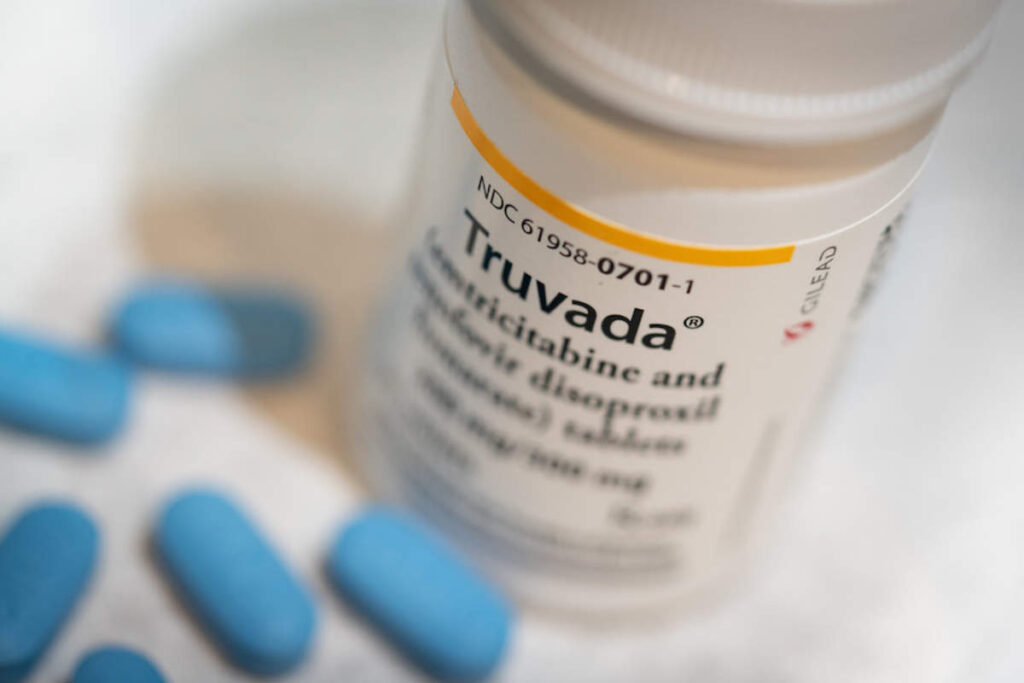This is the latest GOP attack on LGBTQ health
A judge has ruled against a federal mandate for coverage of HIV prevention medication PrEP, signaling a new attack on LGBTQ health, especially in the South.
Today U.S. District Judge Reed O’Connor ruled in Braidwood Management v. Becerra against a provision of the Affordable Care Act that requires employers to provide insurance coverage for PrEP (Pre-exposure prophylaxis), a medication that prevents the transmission of HIV. The judge ruled that the ACA mandate violates employers’ rights under the Religious Freedom Restoration Act. Read the ruling in the case (courtesy of Chris Geidner) here.
PrEP is a daily pill used widely for HIV prevention by individuals who are HIV-negative but at high risk for exposure, including men who have sex with men, people who are in a sexual relationship with an HIV-positive partner, and people who have recently injected drugs. Daily PrEP use can reduce the risk of HIV infection from sex by more than 90%.

PrEP is an especially critical strategy for HIV prevention in the South, the epicenter of the modern HIV crisis in the United States. According to 2016- 2017 CDC data, one-half of all HIV diagnoses occur in the South, 47% of HIV related deaths happened in the South, and 46% of people living with HIV live in the South. In the Campaign for Southern Equality’s Report of the 2019 Southern LGBTQ Health Survey (direct link to HIV data), we found that respondents’ reported rates of living with HIV more than 15 times higher than the national rate, with 5% of respondents saying they are living with HIV and 10.4% saying that they don’t know their status.
This summer the Campaign for Southern Equality launched a new campaign, Meeting the Moment in the LGBTQ South to mobilize responses to growing anti-LGBTQ attacks, such as this ruling. Learn more about Meeting the Moment here.
It comes as according to an NBC News analysis of data from the ACLU and the LGBT+ advocacy group Freedom for All Americans, about 700 anti-LGBT+ bills have been filed since 2018, with the number of bills increasing each year. According to the data, there were 41 bills in 2018, just over 60 in 2019, nearly 150 in 2020, 191 in 2021 and now nearly 300 bills so far this year.
The range of bills include policy proposals that would limit school curricula, as in the Florida “Don’t Say Gay” bill, or ban books with LGBT+ information in libraries, which impacts everyone–including parents of LGBTQ kids. There are also bills that would allow religious exemptions with regard to anti-discrimination laws.

Other bills would either limit or ban trans people from playing sports on teams in line with their gender identity, using bathrooms that correspond with their gender identity or limit receiving gender-affirming health care. Missouri’s House Bill 2649, currently being debated in the legislature, would extend prohibitions on gender-affirming care to adults.
The issue of restricting healthcare access for LGBTQ people has been an ongoing one since the beginning of the Trump administration in 2017. One of the most egregious Trump-era restrictions was enacted in the throes of the pandemic. On June 12, 2020—ironically, the fourth anniversary of the Pulse nightclub mass shooting that killed 49 LGBTQ people and wounded 53 others—President Trump’s Health and Human Services (HHS) department vitiated an Obama-era expansion of Section 1557 of the Affordable Care Act (ACA).
President Obama had expanded Section 1557 to protect LGBTQ people’s access to healthcare. Section 1557 makes it unlawful for any health care provider that receives funding from the federal government to refuse to treat an individual — or to otherwise discriminate against the individual — based on race, color, national origin, sex, age or disability. The Obama administration added protections for sexual orientation and gender identity.
Trump, who aggressively promoted religious freedom laws and policies, ended that expansion. HHS issued a press release on that Pulse anniversary headlined “HHS Finalizes Rule on Section 1557 Protecting Civil Rights in Healthcare, Restoring the Rule of Law, and Relieving Americans of Billions in Excessive Costs.”
The press release states that the “prior administration” had “redefined sex discrimination” to include LGBTQ people and that this was not a legal interpretation and that the expansion was also costing taxpayers. “HHS will enforce Section 1557 by returning to the government’s interpretation of sex discrimination according to the plain meaning of the word ‘sex’ as male or female and as determined by biology,” reads the agency’s press release, in part.
That Trump revision of Section 1557 remains in place and piling onto its restrictions are a plethora of new laws being enacted in the states which will further restrict access to healthcare for LGBTQ people–particularly trans, nonbinary and gender nonconforming people.
While media has focused on the issues of T/NB/GNC youth, these GOP-sponsored laws will also limit care to older LGBTQ people. GNC lesbians have been reporting this issue anecdotally for years in their quest to get supportive and non-judgemental healthcare. The late activist and author Leslie Feinberg spoke out on this issue repeatedly prior to their death in 2014.
Additionally, many queer and trans people come out later in life. Oscar-winning actor Joel Grey, profiled April 12 in the New York Times, famously came out at 82. Design doyenne Debbie Millman came out at 50.
Dr. Rachel Levine, the Biden administration’s Assistant Secretary for Health and former Secretary of the Pennsylvania Department of Health, formally transitioned in 2011 at 53. Caitlyn Jenner transitioned in 2015 at 65. Gender theorist and writer Kate Bornstein transitioned at 40. Actoor and activist Chaz Bono, now 53, transitioned at 41. Actor Elliot Page came out as trans in 2020 at 33. American Olympic figure skater Timothy Le Duc came out as non-binary in 2021, at 30. The path to transition, as Jenner has talked about extensively in interviews, is often fraught.
In an interview with NPR, Levine’s speech on the impact of these GOP-sponsored bills that she delivered at the Out for Health a medical conference in Texas on April 30 was excerpted. The conference focused on “the impact of individual experiences, inclusive communication between patients and providers, and legal policies that directly target LGBTQIA+ patient safety.”
Levine said succinctly that these attacks by Republican lawmakers are risking lives, noting an increase in suicidal ideation over the threat these laws pose to LGBTQ people. She said, “The language of medicine and science is being used to drive people to suicide.” Levine’s remarks, and what she details in her interview, are chilling. Yet more people are coming out–and at all ages.

In a story headlined “What will the midterms look like now that more than 7 percent of Americans identify as LGBT?” the Washington Post reported data analysis by R.G. Cravens, an assistant professor of political science at California Polytechnic State University and a public fellow in LGBTQ rights at the Public Religion Research Institute in Washington, D.C. That data shows a record number of Americans now identify as LGBTQ.
LGBTQ advocates assert that the volume alone of these GOP bills–particularly in a midterm election year—is concerning. Chase Strangio, deputy director for transgender justice at the ACLU LGBT & HIV Project, told NBC News, “It’s important for people to pause and think about what is happening — especially in the health care context — because what we’re seeing is that the state should have the authority to declare a population of people so undesirable that their medical care that they need to survive becomes a crime.”
Strangio added, “What more terrifying intrusion of the state could there be?”
What indeed? In their landmark study on anti-LGBT legislation, “Paying an Unfair Price: The Financial Penalty for Being LGBT in America,” the Movement Advancement Project (MAP) revealed how anti-LGBT laws at the national, state and local levels, like those currently being promoted by Republicans, “contribute to devastating cycles of poverty and create unfair financial penalties in the form of higher taxes, reduced wages and Social Security income, increased healthcare costs and more.”
LGBTQ rights are becoming flashpoints and wedge issues for the right. Sen. John Cornyn (R-TX) spoke at length about religious objections to same-sex marriage during his questioning of Judge Ketanji Brown Jackson in the confirmation hearings, even though the Supreme Court legalized same-sex marriage in 2015. And Sen. Marsha Blackburn (R-TN) had a testy exchange with Jackson over the definition of woman.
With the pandemic still omnipresent and a Gen X and Boomer population needing more, not less healthcare, the fear of restricted access to healthcare is, as Levine notes, as real as it is frightening for LGBTQ people. The midterm primaries are happening over the next few months and the GOP is focusing on culture wars issues to mine voters. If Republicans regain control of Congress, the anti-LGBTQ bills flooding legislatures could move to the House and Senate. It’s not hyperbolic to say LGBTQ people must vote as if their lives depended on it.
As Levine and Strangio state with such clarity—they do.






